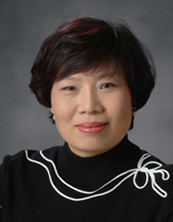Plenary Session 1

Date
10 June 2021 (Thursday)
Time
10:35 ~ 11:35
Topic
Family First: Supporting Asian Families in the Era of Inclusive Growth
Speakers
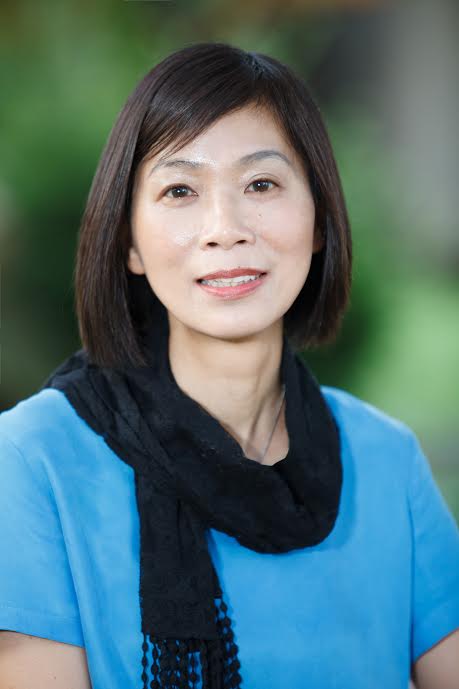
Prof. Mooly Wong
Assistant Professor
Department of Social Work
The Chinese University of Hong Kong
Hong Kong
About the Speaker
Prof. Mooly Wong is an adjunct Assistant Professor of the Department of Social Work of The Chinese University of Hong Kong, a registered social worker, and a Clinical Fellow of the Asian Academy of Family Therapy (AAFT). Her research interests include child protection, children in care, group work, family mediation, family-centred practices, and family wellbeing.
Abstract
A Cross-sectional Study on Family Wellbeing in Hong Kong
Family wellbeing is studied worldwide. However, there is a dearth of studies in this area on Chinese societies such as Hong Kong. This presentation reports the results of a cross-sectional study on family wellbeing in Hong Kong, specifically the overall and domain scores as well as the predictive factors of the wellbeing of Hong Kong families. A telephone survey was used to collect data, and 1,343 respondents were successfully reached. The results showed that the overall family wellbeing index (FWI) score (6.23 out of 10) was within the range of “average”. The scores were higher for family-bounded domains (i.e., family solidarity, family health, and family resources) than for domains related to interactions between family and community (i.e., social resources, social connection, and work-life balance). People who were middle-aged or above, had received a tertiary education, had a middle or high level of family income, or had not encountered a family crisis in the previous year had a higher FWI score than those who were young, had a secondary education or less, had a low level of family income, or had suffered from a family crisis in the previous year. Overall, work-life balance was poor in all domains, and economically active groups and low-income families experienced particularly serious work-life conflict. The implications for family policies and practices were discussed.
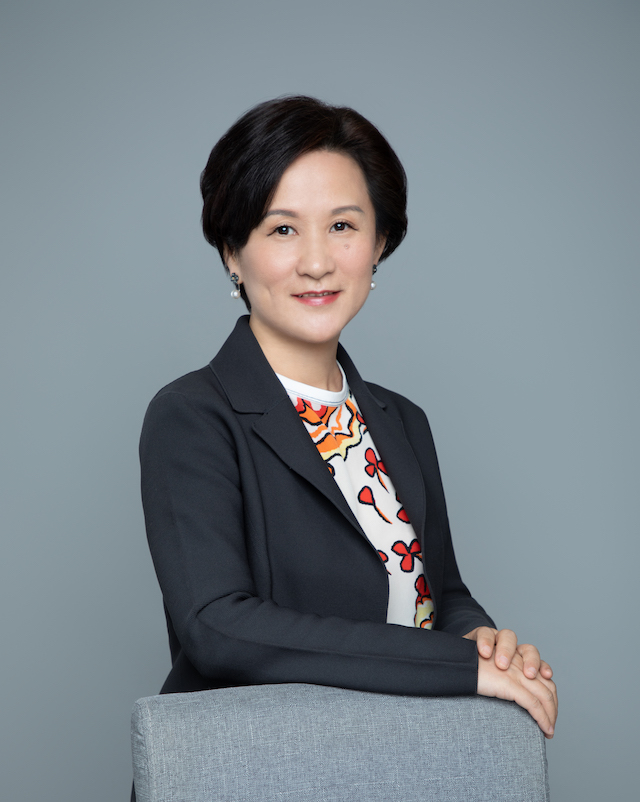
Dr. Vivian Lou
Director, Sau Po Centre on Ageing
Associate Professor, Department of Social Work and Social Administration
The University of Hong Kong
Hong Kong
About the Speaker
Dr Lou Vivian W. Q. is the Director of Sau Po Centre on Ageing, and Associate Professor at the Department of Social Work & Social Administration at The University of Hong Kong. Her research interests focus on family gerontology, in particular, family caregiving for dementia, stroke, end-of-life older adults, and social adaptation and mental health of Chinese older adults and family caregivers. She also has a keen interest in building evidence-based models to empower older adults and their families and to enhance family well-being. Dr Lou is the assistant editor of Ageing and Mental Health and editor of the Asian Journal of Gerontology & Geriatrics. Dr Lou has been appointed as a member of the Elderly Commission, Statistics Advisory Board, Community Investment and Inclusion Fund, Senior Police Call Central Advisory Board, and Elderly Academy Development Foundation of the HKSAR Government. She is a fellow of the Gerontological Society of America, and a Council member of the Hong Kong Association of Gerontology.
Abstract
Wofoo Asian Award for Advancing Family Well-being: Good Practices and Impacts
Background: The importance of family well-being has been well acknowledged globally, strengthening both family functioning and family well-being has been a core principle and focus of interventions targeting families. The uniqueness of Confucianism in Asian region implies that the intervention and social service models originated from the West may not be fully applicable and replicable. In order to empower social service organisation in Asia to address important issues related to family well-being and to echo international efforst on this front as part of member in the global village, the Consortium of Institutes on Family in the Asian Region (CIFA) was established with its flagship programme ― the Wofoo Asian Award for Advancing Family Well-being (3A project) ― to bring out the goiod practices of social services organisations in the Asia region. This study aimed to identify best practices and consolidate social impacts of the 3A Project.
Methods: A mixed methodology including document review and in-depth interviews were adopted. Apart from reviewing related publicatiobs on 3A Project as a regional initiative, a total of 40 project documents containing all the eight awardees across five rounds (2010, 2012, 2014, 2016 and 2018) of 3A Project have been reviewed following the PIE-ISI framework. A total of four awarded project were purposefully selected for in-depth interview based on parameters such as level of award, participating country, and year of entry. Thematic analyses were applied to document review; and impact analyses were applied to indepth interivews as well.
Results: Six best practices have been identified in this study, they are (1) project rationale focusing on family well-being, (2) multi-disciplinary collaboration and implementation of projects, (3) rigorous evaluation of project effectiveness and cost- effectiveness, (4) innovative intervention design and utilisation of digital platform, (5) sustainability and replicability of projects, and (6) institutional synergy. Impacts at professional, organization, community, and regional/international levels were also consolidated and elaborated.
In conclusion: 3A project under CiFA’s initiative has successfully achieved its mission and vision to “provide a platform for trans-disciplinary collaboration with the ultimate goal to strengthen family functioning and promote family health”. Positioned as a regional organization, it is believed that through the above mentioned best practices generated and consolidated from the 3A Project, family well-being could be better promoted and empowered, which has international significance. In the coming years the 3A Project would be expanded from 3A to 4A, aiming to strengthen the “Alliance” for further consolidation, collaboration and sharing of knowledge and practice wisdom among organizations to create further impact.
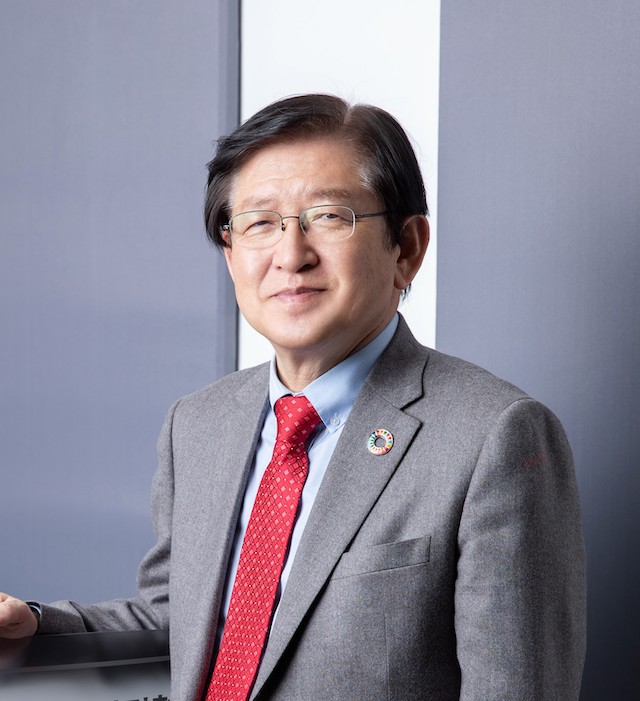
Prof. Sang Mok Suh
President, Korea National Council on Social Welfare
Global President, International Council on Social Welfare
Korea
About the Speaker
Dr. Sang-Mok Suh is the Global President of International Council on Social Welfare, a non-governmental organization that embraces the issues of social welfare, social justice and social development, as well as president of the Korea National Council on Social Welfare, the representative body of the private social welfare sector in Korea. Dr. Suh was Member of the Korean National Assembly during 1988-2000. At the National Assembly, he was active in legislation on economic policy issues, working primarily at the Finance and Economy Committee and the Budget Committee. During 1996-97, Dr. Suh served as a high-level advisory board member to the UN Secretary General on Sustainable Development.
During his tenure as Minister of Health and Welfare in the Korean Government in 1993-95, Dr. Suh initiated reforms to the National Health Insurance Plan and the National Pension Scheme and promoted the ‘Osung Bio Industrial Zone Project’. During 1978-88, Dr. Suh worked for the Korea Development Institute (KDI), which is a government think-tank focused on economic policy formulation. During 1973-78, Dr. Suh worked for the World Bank as an economist. Dr. Suh received his Ph.D. in economics from Stanford University in 1974 and B.A. in economics and mathematics from Amherst College in 1969. He received the ‘Sequoia Award’ from Stanford University in 1995 for his distinguished activities as a Stanford alumnus.
Dr. Suh has written widely in socio-economic field. He is the author of many articles and several books on Korean economy, including a book titled 『Structural Adjustment in a Newly Industrialized Country: Lessons from the Korean Experience』 (Oxford Press, 1998) and a Korean book titled 『Welfarenomics: Road to Sustainable Capitalism and Welfare State』 in 2013 and 『The Age of Balance: New Economic, Welfare Paradigm in the Post COVID-19 Era』 in 2020.
Abstract
Supporting Korean Families in the Era of Inclusive Growth
The family policy in Korea had its motto as “family first, society later,” where the family solve their problem by themselves first and the state intervene selectively only when the problem re-occurred after the efforts of the families. New social risks such as family disintegration, low birthrate, activation of women’s employment and caring gaps has been raised and the Framework Act on Healthy Families was enacted in 2005 to resolve concerns and problems of families. A basic plan for healthy families based on the Framework Act on Healthy Families has been established and promoted every five years, aiming for equality and work-life balance within the family, with an emphasis on creating a happy and equal society for all members of the family. The 1st Basic Plan for Healthy Families(2006~2010) raised awareness of family issues, and established the institutional basis for promoting an integrated family policy and the basis for expanding family support. It also established the infrastructure for promoting family support projects and laid the foundation for family policy. The 2nd Basic Plan for Healthy Families(2011~2015) expanded the scope and subject of family policy to individuals, families, communities and the state and emphasized mutual responsibility and partnership by emphasizing the spread of family value as a major task in family crisis prevention for the universal family, health promotion, family capacity strengthening and also by emphasizing the cooperation between “family-community-state” as the subject of child care. From 2016, the 3rd Basic Plan for Healthy Families is being promoted with the policy vision of ‘Realizing a Happy Society for All Families.’ In this presentation, I will examined the problems of the 3rd Basic Plan for Healthy Families in detail and discuss the direction of the family policy development.
Plenary Session 2

Date
11 June 2021 (Friday)
Time
09:40 ~ 10:40
Topic
Marriage, Divorce and Re-marriage
Speakers
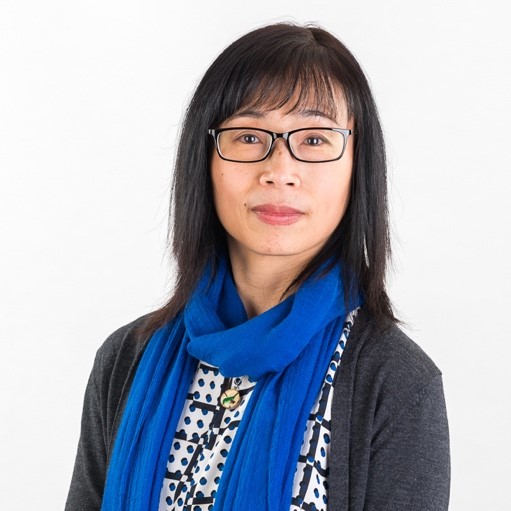
Dr. Lixia Qu
Senior Research Fellow
Australian Institute of Family Studies
Australia
About the Speaker
Lixia Qu is a Senior Research Fellow at the Australian Institute of Family Studies. She has undertaken a range of research on family-related issues. Lixia has also made important contribution to various evaluations of amendments to the Australian Family Law Act (1975) and of family-related service provision. Lixia has extensive experience in research design and has managed a number of projects including family trends and transitions, the Longitudinal Study of Separated Families. Her research interests include family formation, the impacts of separation on financial living standards and personal wellbeing, post-separation parenting.
Abstract
Parental separation and complex family needs
As in many countries, Australia has seen a marked rise in parental separation. Over one-fifth of Australian children aged under 18 years have a parent living elsewhere. The Australian government has made a series of changes to the family law system over the last two decades to encourage greater involvement of both parents in children’s lives after separation, where this is practical and does not compromise their safety. Here, involvement includes both care-time and financial support. Drawing upon data of the Longitudinal Study of Separated Families in Australia, this presentation examines the extent to which children’s needs are being met in terms of parental involvement, financial wellbeing and safety from family violence or abuse.
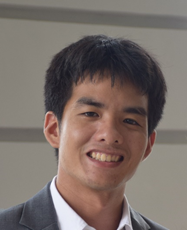
Mr. Justin Chang
Assistant Director
Family Policy Office
Ministry of Social and Family Development
Singapore
About the Speaker
Justin Chang is currently Assistant Director of the Family Policy Office at the Ministry of Social and Family Development, Singapore. The Family Policy Office oversees the formulation and review of family policies, legislation and conducts family research to drive and inform evidence-based policies and programmes. Justin joined the Public Service in 2013, and prior to the current portfolio, has worked in other social and health-related portfolios, including the Social Programmes directorate of the Ministry of Finance, where he oversaw the development and budget of social policies and programmes with the Ministry of Social and Family Development.

Ms. Shermain Lee
Manager
Family Policy Office
Ministry of Social and Family Development
Singapore
About the Speaker
Shermain is currently Manager in the Family Policy Office at the Ministry of Social and Family Development, Singapore. The Family Policy Office oversees the formulation and review of family policies, legislation and conducts family research to drive and inform evidence-based policies and programmes. Apart from her current portfolio, Shermain has also had experience working in the Rehabilitation and Protection Policy Office in the same ministry, which oversees the formulation and review of policies relating to the protection of children, women and girls, and vulnerable adults from abuse and neglect, as well policies relating to the rehabilitation of young offenders.
Abstract
Landscape of Marriage and Divorce in Singapore – Trends, Policies and Programmes
[Presenters: Justin Chang, Assistant Director, FPO/FDG, MSF and Shermain Lee, Manager, FPO/FDG, MSF]
Marriage and Divorce are significant life transitions for couples. As such, Singapore has put in place policies and a continuum of programmes to ensure that couples are well-supported through marriages or divorces. As couples get ready to tie the knot, we have marriage preparation programmes to equip couples with useful skills such as, in problem solving, conflict resolution and communication, to help couples prepare for their marriage journey. During the course of the marriage, couples may experience marital issues, conflicts or differing expectations in their relationship. We encourage these couples to attend marriage counselling to improve their marital relationship. Should couples choose to divorce, families and their children will inevitably be affected. Programmes are in place to support divorcing couples and minimise the effects on their children through positive co-parenting. This presentation will share the marriage and divorce trends in Singapore as well as the support structures and programmes in place to support couples and their children through these transitions.
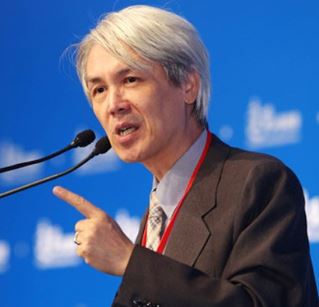
Prof. James Hsueh
Professor
National Taiwan University
Taiwan
About the Speaker
Cherng-Tay Hsueh, or James C.T. Hsueh (ORCID:0000-0003-0516-1754) is currently a professor in the department of Sociology, section head of Children and Family Research Center at National Taiwan University. He was appointed as Minister without Portfolio (2009-2013) in charge of policies regarding social welfare and labor issues. His research interests include social stratification, social demography, education and social policies. In the past five years, he has published three books (in Chinese) related to the population issue. Population Crisis is Arriving in Taiwan (June 2020) was the recent one.
Abstract
Marriage or Merry Age? The Recent Population Changes in Taiwan
The author invented a new word “merriage” which means merry ages for those young people looking for happy lives without wedlock. In Taiwan, the fertility was 7 in 1951 and dropped to less than 1 last year. In particular, a rapid drop of marriage rate and a concomitant decrease in fertility were shown in the past three decades. As of the end of 2019, only 28% married among people aged 25 to 44. This implies a further decease in fertility in the future mainly because the outside-marriage birth has accounted for only 4% of total birth yearly in the past. The author will present the recent trend of fertility and marriage in Taiwan and try to answer why marriage matters as a key measure for the recuperation of birth in Taiwan.
Plenary Session 3

Date
11 June 2021 (Friday)
Time
10:50 ~ 11:50
Topic
Inter-generational Issues
Speakers
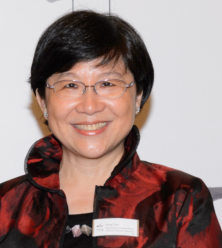
Prof. Joyce Feng
Director
National Taiwan University Children and Family Research Center Sponsored by CTBC Charity Foundation
Taiwan
About the Speaker
Joyce Yen Feng is Professor of Social Work at National Taiwan University, and the Director of the NTU Child and Family Research Center. She earned a PhD degree of Social Work in the University of Illinois at Urbana-Champaign.
Her research interests and professional specialty in social work are around two foci: Child & Family Welfare and NPO developments. In the area of child welfare, she has published books, papers in academic journals and conference proceedings on related titles. She has been heavily involved in the child welfare advocacy work in Taiwan, such as the modification of the Child Welfare Law in 1993, enacting the Child and Youth Welfare Law in 2003, modifying it in 2011 etc.
She has conducted researches on Taiwan’s nonprofit sector too. The Taiwan NPO self-regulation Alliance was set up via her action research project in 2005 then had her elected as its President for 2012-2018.
Apart from her academic research on the NPOs and the Third Sector, she has directly participated in the work of many nonprofit organizations. She had served as Executive Director of the Child Welfare League Foundation for 10 years, and then been its Board member and President of the Board. She has been on the board of the United Way Taiwan, the R.O.C. Red Cross, among her many other local NPO engagements. She has joined the board of international NPOs, such as Asian Pacific Philanthropy Consortium, United Way World Wide, Consortium of Institute for Families in Asia, and had served as the president of International Council of Social Welfare- North Eastern Asia Region.
She offered services to the academic societies as board member, editor of Journals, and been invited as social welfare consultant and gender equality committee member to the Central and Municipal governments in Taiwan. She had been the National Policy Consultant to the President of the Republic of China 2010 – 2013, served as the Minister without Portfolio in charge of social welfare policies at Executive Yuan in Taiwan’s central government for 2013-2016. Thus she had involved closely with the policy for elderly to initiate the 2015 White Paper on Ageing Society of Taiwan, and to push the Long-term Care Service Act passed in 2015, among other social welfare policies. She also advocated and promoted social enterprises by initiating the policy of Social Enterprise Action Plan for the Executive Yuan in 2014 to forge the social enterprise ecology in Taiwan.
Abstract
The coping strategy of adult caregivers and the cross generational relationship in Taiwan
Ageing is a global phenomenon, but more prevalence in North-Eastern Asia. It was regarded the national security level social problem by the government in Taiwan, since the ageing pace has been faster than ever before. The population of over 65-year-old was 11.74% in 2010, 14% in 2018, estimated to be over 20% in 2025. In another word, we have very little preparation time for becoming a superaged society. Therefore, how to prevent the families with elderly been crashed from the care burden is in the center of policy concerns and in practice as well. Evidence based research in related areas is needed.
In view of the burning issues of ageing population and the caregivers burden and coping challenges in Asia, the Research & Training Committee of CIFA proposed to conduct its 3 rd Cross-Regional Study on “The Mental Health and Coping Styles of Adult Children Caregivers of Frail Elderly in 7 Asian countries in 2019-2020. It’s research objectives are: 1. To investigate the caregiver burden, mental health, and quality of life of caregivers of frail elders; 2.To investigate the coping styles, relationship qualities, and conflicts in these families; 3.To investigate the relationship of filial piety, caregiver burden, depression, and family conflicts, and 4.To explore the factors that contribute to the better mental health of caregivers and their family relationships. Unfortunately, the COVID-19 Pandemic restricted the feasibility of data collecting in most of the fellow countries besides Taiwan. Thus, this presentation is prepared by Prof. Joyce Y. Feng from Taiwan and the original P.I., Prof. Herman Lo who drafted the proposal and the questionnaire, using data collected from 426 Taiwanese adult children caregivers during June and July in 2020.
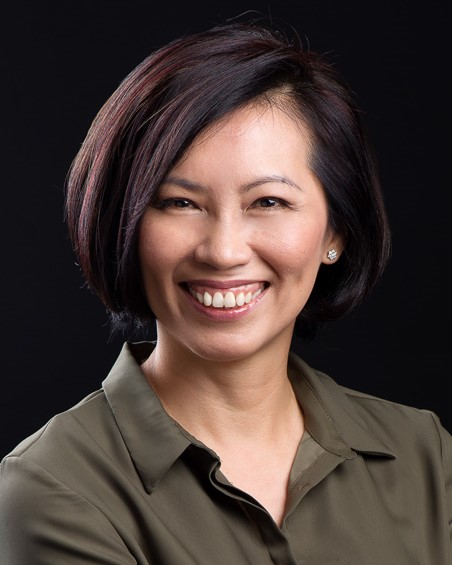
Prof. Esther Goh
Head of Department
Department of Social Work
National University of Singapore
Singapore
About the Speaker
Esther is an Associate Professor and Head of the Department of Social Work of the National University of Singapore. She is one of the 12 winners of the inaugural competitive Social Science Research Council Grant at the national level in 2017. Her research centres on championing the need to utilize a more dynamic theory to examine childrearing and parent-child relationships. She adopts a bilateral lens that conceptualizes both children and parents (including adult caregivers and grandparents) as agentic beings influencing each other. Together with her students, they have empirically illustrated children and young persons, even those living in vulnerable conditions, as capable agents, who contribute to solutions of problems.
Abstract
Two child policy means double trouble for Chinese grandparents?
The Chinese government announced the end of the one-child policy and allowed every family to have two children to address the country’s aging population in 2015. According to a national survey (2014) conducted prior to the two-child policy, 60-70 percent of children between zero to two-years-old were cared for by grandparents. An intergenerational parenting arrangement whereby grandparents and parents jointly take care of the child is regarded as a family strategy that maximize resource for fulfilling the needs of both parents and children in contemporary China. Nevertheless, whether it is realistic to expect grandparents to commit themselves to care for the second grandchildren the way they felt obligated to the only precious grandchild deserves attention. Less is known about contemporary grandparents’ considerations and decisions regarding the demanding and lengthy responsibility as primary childcare providers. In-depth interviews were conducted in Fuzhou city with two groups of grandmothers. One group were the main caregivers for their grandchildren (N=10) and the other group did not play the caregiving role (N=10). Grandmothers who cared for grandchildren did it out of a strong sense of family obligation. Their non-caregiving counterparts on the other hand, did not opt out of childcare. Instead, they were deprived of opportunities because the other set of grandparents were caring for the only grandchild. Defying Chinese cultural expectation, the non-caregiving grandmothers did not feel a sense of guilt. Instead, seven out of ten expressed a sense of relieve and even happiness for not having to carrying the burden of childcare. With regards to caring for the second grandchild, half of non-caregiving grandmothers did not welcome the idea whereas seven out of ten of caregiving grandmothers were somewhat open to caring for the second grandchild. The over reliance on women, grandmothers and mothers in particular, in providing unpaid childcare, and the inadequate provision of affordable childcare could explain the lukewarm reaction to the two-child policy. In fact, in 2019 the China’s birth rate fell under 10.5 per 1000 – the lowest level since 1952.
